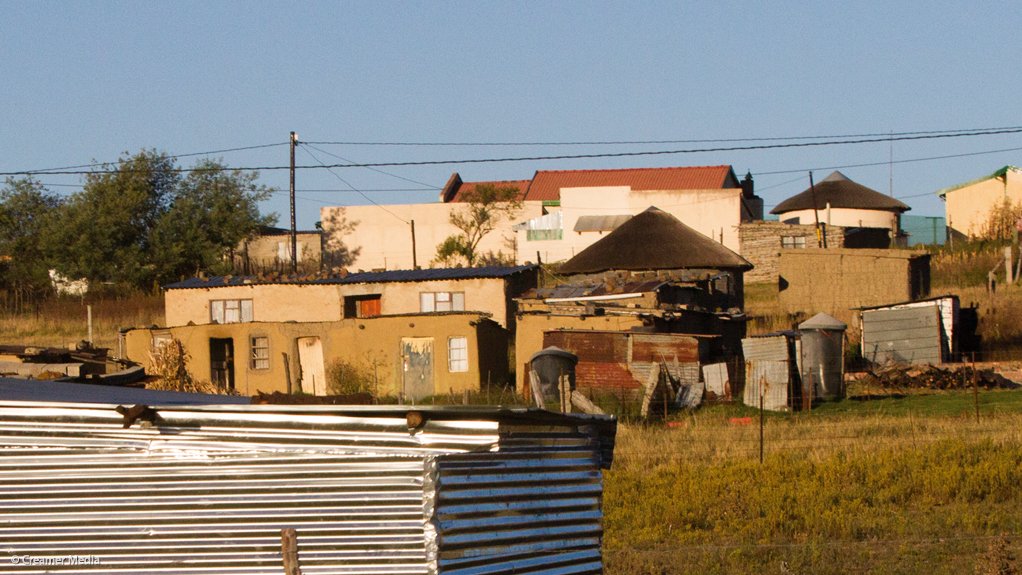Concern continues to be raised over the fact that the biggest cut made to the Department of Minerals Resources and Energy’s (DMRE’s) 2020/21 budget is for the electrification of poor households, especially in those province with the largest connection backlogs.
The cuts, which were signalled in early July, were confirmed in a Budget Vote speech delivered on July 21 by Tourism Minister Mmamoloko Kubayi-Ngubane on behalf of Mineral Resources and Energy Minister Gwede Mantashe, who was in hospital for Covid-19.
She said the main appropriation for the DMRE budget had been reduced by R1.55-billion, from R9.34-billion to R7.76-billion, with the R1-billion cut to the Integrated National Electrification Programme (INEP) Eskom grant contributing the lion’s share of the reduction, together with the R500-million cut made to the INEP grant for municipalities.
Prior to the adjustments, which were made in response to the National Treasury’s call for department budgets to be reprioritised in light of the Covid-19 pandemic, R3-billion had been allocated for the INEP-Eskom grant and R1.85-billion to the INEP-municipalities grant.
In earlier engagements with lawmakers, the DMRE confirmed that the reduction would delay the implementation of planned bulk infrastructure projects, and decrease the number of new household connections in 2020/21 by 43 000 to 137 000, from the initial 180 000 connections targeted for the year.
The reduction in the INEP-Eskom grant would, the department also confirmed, have a significant negative impact on the Eastern Cape, Limpopo and KwaZulu-Natal provinces, which currently have the largest electricity backlogs in the country.
The Portfolio Committee on Mineral Resources and Energy recommended that the department develop a mitigating strategy to ensure that the remaining R3.36-billion in INEP grants were distributed on time, to avoid a situation whereby funds were reallocated or rolled over.
The committee also encouraged the department to consult with the National Treasury for additional funding for the programme, prior to the Medium-Term Budget Policy Statement.
Kubayi-Ngubane said the department had engaged with both municipalities and Eskom to agree on the criterion used to determine the portion of the budget reduction of R1.5-billion to be absorbed by the various municipalities and the utility.
“This reduction is on projects that are amongst others not ready for delivery and can be moved to outer years.”
On learning of the proposed reductions, Energy Governance South Africa (EGSA), which is a network of over 110 concerned individuals and organisations established to promote good governance in the energy sector, questioned the rationale for the reductions.
“It is difficult to understand how the reduction in spending on electrification and energy efficiency fall within the criteria of Treasury’s instruction to cut ‘spending activities that are not critical to the core service delivery requirements of the department’.”
“Not only is such expenditure core to the purpose of the DMRE – the Department of Energy’s annual report for 2018/19 refers to this as its ‘flagship programme’ – but it is also one action that the DMRE can take that would help poor and vulnerable South Africans cope with Covid-19.”
EGSA recommend that a substantial amount of the R1.5-billion reduction should rather be removed from the R1.1-billion allocated for nuclear energy regulation and management and the R939-million allocated to the South African Nuclear Energy Corporation (Necsa).
Likewise, the Organisation Undoing Tax Abuse question the allocation to Necsa, given it is not fulfilling its accountability obligations.
“Expanding our nuclear facilities is not urgent, nor is it in the electricity plan for the future, and should be rejected, and that funding reallocated to other areas of the energy portfolio,” Outa said, while recommending an increased electrification allocation towards offgrid electrification.
EMAIL THIS ARTICLE SAVE THIS ARTICLE ARTICLE ENQUIRY
To subscribe email subscriptions@creamermedia.co.za or click here
To advertise email advertising@creamermedia.co.za or click here











